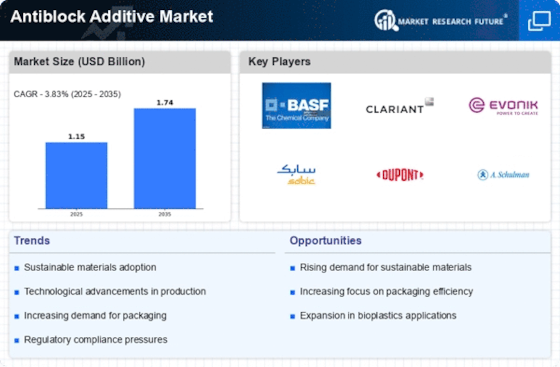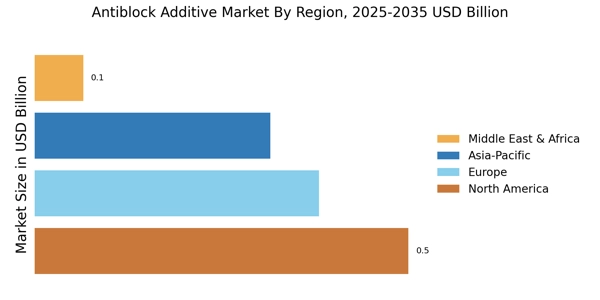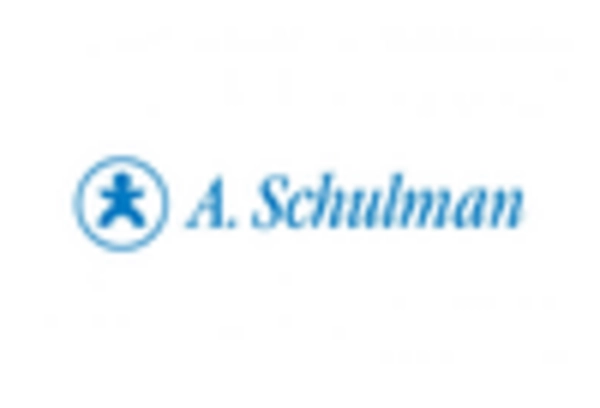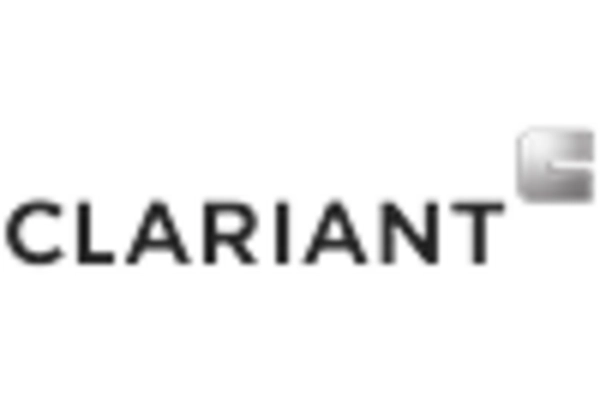Growth in the Plastics Industry
The Antiblock Additive Market is closely linked to the expansion of the plastics industry, which has been witnessing robust growth. The Antiblock Additive Market is anticipated to reach USD 650 billion by 2025, driven by increasing applications across various sectors, including automotive, construction, and consumer goods. Antiblock additives are essential in enhancing the performance of plastic products, particularly in film and sheet applications. These additives help to reduce friction and prevent the sticking of layers, thereby improving the overall quality of plastic films. As the demand for high-performance plastics continues to rise, the Antiblock Additive Market is expected to benefit significantly from this upward trend, as manufacturers seek to optimize their products for better functionality.
Rising Demand for Packaging Solutions
The Antiblock Additive Market is experiencing a notable surge in demand for innovative packaging solutions. As consumer preferences shift towards convenience and sustainability, manufacturers are increasingly incorporating antiblock additives into their products to enhance performance. The Antiblock Additive Market is projected to reach USD 1 trillion by 2026, with a significant portion attributed to the use of antiblock additives. These additives play a crucial role in preventing the sticking of plastic films, thereby improving the efficiency of packaging processes. This trend is particularly evident in sectors such as food and beverage, where the need for extended shelf life and product protection is paramount. Consequently, the rising demand for effective packaging solutions is likely to propel the growth of the Antiblock Additive Market.
Regulatory Support for Sustainable Practices
The Antiblock Additive Market is likely to benefit from increasing regulatory support aimed at promoting sustainable practices. Governments across various regions are implementing stringent regulations to reduce plastic waste and encourage the use of eco-friendly materials. This regulatory landscape is pushing manufacturers to adopt antiblock additives that are not only effective but also environmentally friendly. The market for biodegradable and bio-based antiblock additives is expected to grow, as companies strive to comply with these regulations while meeting consumer demands for sustainable products. This shift towards sustainability is anticipated to drive innovation within the Antiblock Additive Market, leading to the development of new formulations that align with environmental goals.
Increasing Consumer Awareness of Product Quality
The Antiblock Additive Market is experiencing a shift driven by increasing consumer awareness regarding product quality and safety. As consumers become more discerning, they are demanding higher standards in packaging and product presentation. Antiblock additives play a vital role in ensuring that products maintain their integrity and visual appeal during storage and transportation. This heightened focus on quality is prompting manufacturers to invest in superior antiblock solutions that meet consumer expectations. The market for high-quality packaging materials is projected to grow, with antiblock additives being a key component in achieving desired performance levels. Consequently, this trend is likely to bolster the Antiblock Additive Market as companies strive to enhance their product offerings.
Technological Innovations in Additive Manufacturing
Technological advancements in additive manufacturing are poised to influence the Antiblock Additive Market significantly. Innovations in production techniques and materials are enabling manufacturers to create more efficient and effective antiblock additives. For instance, the development of nanotechnology-based additives is enhancing the performance characteristics of traditional antiblock agents. These innovations are not only improving the functionality of plastic films but also expanding their applications across various industries. As manufacturers increasingly adopt advanced technologies to enhance product performance, the Antiblock Additive Market is likely to witness a surge in demand for these innovative solutions, thereby fostering growth and competitiveness.

















